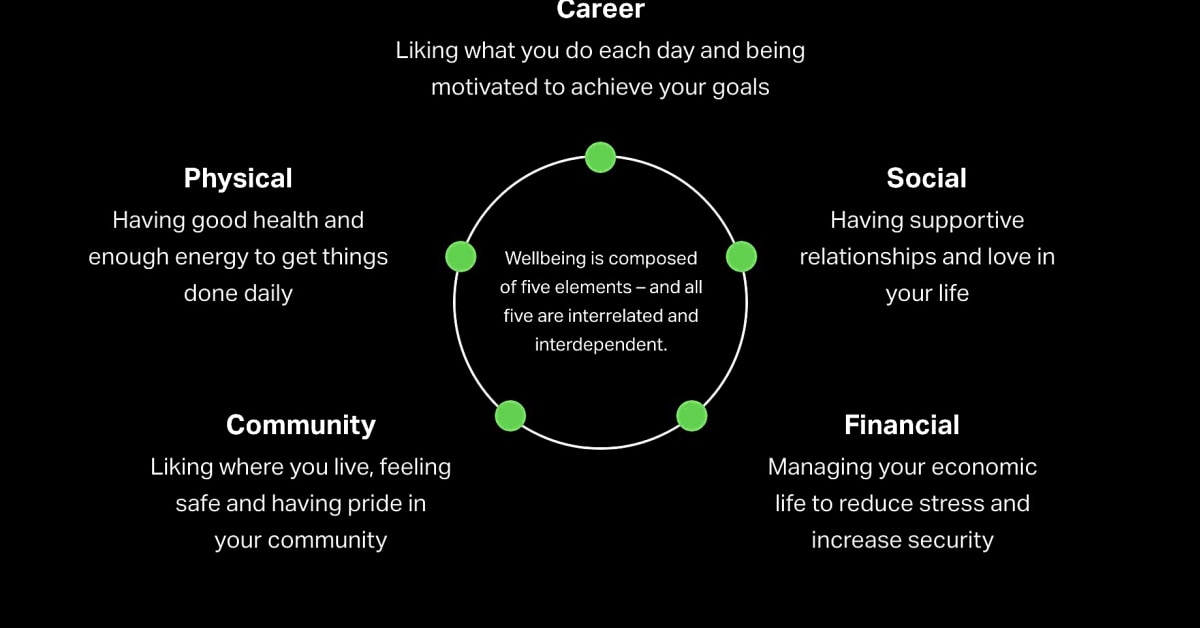Welcome to our article on overcoming burnout and fatigue in business management. As professionals, we are constantly under pressure to perform at our best, often leading to feelings of exhaustion and burnout. This can greatly impact our productivity, motivation, and focus, ultimately hindering our success. In this article, we will explore effective strategies for overcoming burnout and fatigue, specifically in the context of business management. Whether you are a business owner, manager, or employee, this article is for you. So let’s dive in and learn how to overcome burnout and fatigue in order to thrive in the fast-paced world of business. Be prepared to take notes, as we have plenty of valuable insights and tips to share with you. Let’s get started!
To start with, it is important to understand the causes of burnout and fatigue in business management. Long hours, high stress levels, and constant pressure to perform can all contribute to burnout. This is why it is crucial for business owners and managers to prioritize their mental and physical well-being. One effective way to do this is by implementing proper time management techniques. This can include setting realistic goals and deadlines, delegating tasks to team members, and taking breaks when needed. Additionally, effective communication skills are essential in preventing burnout and maintaining a healthy work-life balance. Being able to express concerns and delegate tasks effectively can greatly reduce stress levels and prevent burnout. Another key aspect of overcoming burnout in business management is developing effective leadership skills. This involves inspiring and motivating team members while also being able to handle conflicts and challenges within the team. Project management is also crucial in preventing burnout and maintaining productivity. By setting realistic timelines and breaking down large projects into smaller, manageable tasks, businesses can avoid overwhelming their team members and causing burnout. Team building is another important factor in preventing burnout. By fostering a positive and supportive work environment, businesses can create a strong team dynamic and prevent burnout among team members. Decision making and problem-solving skills are also essential in business management. Being able to make effective decisions and solve problems efficiently can prevent burnout caused by constant stress and uncertainty. Lastly, organizational skills play a significant role in preventing burnout and staying productive in business management. By maintaining a well-organized system for tasks, deadlines, and documents, businesses can avoid the chaos that can lead to burnout.
All of these aspects work together to help individuals overcome burnout and fatigue in business management and maintain a healthy work-life balance. By implementing these strategies and skills, business owners and managers can ensure their success and the success of their team.
Project Management for Productivity
One of the biggest challenges in business management is effectively managing projects. Often, projects can become overwhelming for team members, leading to burnout and fatigue. To overcome this, it is crucial to break down large projects into smaller, more manageable tasks.
This not only helps to avoid overwhelming team members, but it also allows for better time management and productivity. By dividing a project into smaller tasks, team members can focus on one task at a time, without feeling overwhelmed by the overall project.
Additionally, breaking down large projects can also help with decision making and problem solving. With smaller tasks, it is easier to identify any issues or roadblocks that may arise and address them in a timely manner. This can prevent delays and keep the project on track.
Organizational skills are also essential in project management for productivity. By dividing a project into smaller tasks, it is easier to assign responsibilities and keep track of progress. This can also improve communication within the team, as everyone knows their role and responsibilities.
The Power of Decision Making and Problem Solving
One of the most critical skills in business management is the ability to make effective decisions and solve problems efficiently. These two skills go hand in hand, as decision making often involves identifying and solving problems that arise in the business.
Effective decision making involves evaluating all available information, considering potential consequences, and selecting the best course of action. This requires a strong understanding of the business, its goals, and its resources. It also involves being able to think critically and objectively, even under pressure.
Solving problems efficiently involves identifying the root cause of the issue, brainstorming potential solutions, and implementing the most effective solution. This skill requires a combination of analytical thinking and creativity, as well as the ability to collaborate with others.
Both decision making and problem solving are crucial for maintaining productivity and overcoming burnout and fatigue in business management. By making sound decisions and effectively solving problems, managers can prevent issues from escalating and keep their team on track towards success.
Developing Leadership Skills
Developing strong leadership skills is essential for overcoming burnout and fatigue in business management. As a leader, you are responsible for inspiring and motivating your team members while also handling conflicts that may arise.
To effectively inspire and motivate your team, it is important to lead by example. Show your team that you are dedicated and committed to the success of the business by setting achievable goals, being transparent with communication, and maintaining a positive attitude. This will help to create a sense of motivation and drive within your team, which can combat burnout and fatigue.
In addition, as a leader, it is important to handle conflicts in a constructive and effective manner. This includes actively listening to all parties involved, addressing the root cause of the conflict, and finding a solution that benefits everyone. By handling conflicts in this way, you can prevent them from escalating and causing further stress and burnout within your team.
Leadership skills are also important when it comes to delegating tasks and managing workload. It is crucial to delegate tasks evenly and fairly amongst team members, taking into consideration their strengths and workload. This will help to prevent burnout from overworking certain individuals and create a sense of teamwork within the group.
The Importance of Time Management
Burnout and fatigue can be caused by a number of factors, but one of the main contributors is poor time management. When you are constantly feeling overwhelmed and rushed, it can lead to exhaustion and a lack of motivation in your business management role. That’s why it’s essential to prioritize effective time management techniques to prevent burnout.
One key aspect of time management is setting clear and realistic goals for yourself and your team. This not only helps you stay focused and on track, but it also allows for a better distribution of tasks and responsibilities. By setting achievable goals, you can avoid feeling overwhelmed and burnt out.
Another important time management technique is creating a schedule or to-do list for each day. This allows you to prioritize tasks and manage your time more efficiently. By breaking down larger projects into smaller, manageable tasks, you can prevent burnout and stay motivated.
Additionally, it’s important to eliminate distractions and interruptions as much as possible. This could mean turning off your phone or email notifications during designated work times, or finding a quiet space to work without interruptions. By minimizing distractions, you can maximize your productivity and prevent burnout.
Remember, effective time management is crucial for preventing burnout and maintaining motivation in business management. By setting goals, creating a schedule, and minimizing distractions, you can improve your time management skills and avoid exhaustion in the long run.
The Role of Communication Skills
Effective communication is a crucial skill for business management, and it can play a significant role in preventing burnout and maintaining a healthy work-life balance.
Communication is essential for building strong relationships with team members, clients, and other stakeholders. By fostering open and transparent communication, managers can create a positive work environment where employees feel valued and supported. This can help reduce stress and burnout, as employees feel more connected to their work and colleagues.
In addition, effective communication can help set clear expectations and boundaries for workload and deadlines. This allows employees to better manage their time and avoid feeling overwhelmed or overworked. It also allows for open discussions about workload and potential solutions, promoting a collaborative and supportive workplace culture.
Moreover, good communication skills can also help managers maintain a healthy work-life balance. By being able to effectively communicate their needs and boundaries, managers can set realistic expectations for their workload and avoid taking on too much. This can help prevent burnout and allow for a healthier balance between work and personal life.
In summary, communication skills are crucial for preventing burnout and maintaining a healthy work-life balance in business management. By fostering open communication, setting clear expectations, and promoting a positive work culture, managers can create an environment that supports employee well-being and productivity.
Building a Strong Team Dynamic
A strong team dynamic is essential for any successful business. When employees feel supported and valued, they are more motivated to work hard and contribute to the company’s success. As a business owner or manager, it is your responsibility to create a positive and supportive work environment for your team.
One way to build a strong team dynamic is by fostering open communication. Encourage your team members to share their thoughts and ideas, and listen to their feedback. This will not only make them feel heard and valued, but it can also lead to new insights and solutions for business challenges.
Another important aspect of building a strong team dynamic is promoting collaboration and teamwork. Assigning group projects and encouraging employees to work together can improve communication, problem-solving skills, and overall productivity. It also creates a sense of camaraderie among team members.
Additionally, it’s important to recognize and appreciate the efforts of your team members. This can be done through verbal recognition, incentives, or even team-building activities. When employees feel appreciated, they are more likely to be motivated and engaged in their work.
Overall, creating a positive and supportive work environment is crucial for overcoming burnout and fatigue in business management. By building a strong team dynamic, you can improve productivity, foster creativity, and ultimately drive success for your business.
Organizational Skills for Success
One key aspect of overcoming burnout and fatigue in business management is maintaining a well-organized system for tasks, deadlines, and documents. This not only helps with productivity, but also reduces stress and can prevent burnout.
To begin, it’s important to prioritize tasks and create a schedule. This can be done on a daily or weekly basis, depending on the nature of your business. Make sure to include both short-term and long-term tasks, as well as any important deadlines. This will help you stay on track and avoid feeling overwhelmed.
Another helpful organizational skill is keeping track of important documents and information. This can include contracts, reports, financial records, and more. Having a system in place for storing and accessing these documents will save you time and energy in the long run.
Utilizing technology can also greatly improve organizational skills. There are many tools and apps available that can help with project management, time tracking, and team communication. Find the ones that work best for you and your team, and make use of them to streamline your processes.
Lastly, maintaining a clean and clutter-free workspace can also have a positive impact on organizational skills. A cluttered desk or workspace can lead to distractions and a feeling of chaos. Take some time each day to tidy up and keep your workspace organized.
In conclusion, burnout and fatigue are common challenges faced by business owners and managers. However, by implementing effective strategies such as time management, communication skills, leadership skills, project management, team building, decision making, and organizational skills, individuals can overcome burnout and maintain a healthy work-life balance. By prioritizing their mental and physical well-being, business owners and managers can ensure their success and the success of their team.






